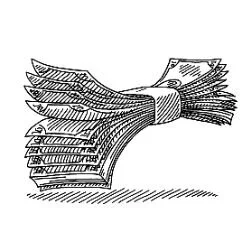Abrasive Behavior at Work: Who is the Abrasive Leader?
/I’ve written plenty on how abrasive leadership isn’t conducive to a healthy, conflict-competent workplace environment. But what about the abrasive leader? How does this behavior affect them?
The defining traits that will damage an abrasive leader’s career will also damage their personal lives. An abrasive leader isn’t only likely to find themselves on the ropes professionally, they’re going to face real world consequences in every area of their life.
Common co-worker complaints of repeated behaviors are: public humiliation, unpredictable or demeaning behavior, yelling or lack of emotional control, inappropriate hostile or sexual comments or behaviors, maligning another’s character or reputation Do you think someone who exhibits these characteristics professionally suddenly flips a switch on their way out of the office to transform into a considerate, encouraging, or stable individual in their personal life?
Read More








When we join a company, partnership or team, our expectation is that everyone involved will exhibit professional behavior toward us and each other. Instead, it’s highly possible that we may become one of the more than 60 million adults in the United States who are affected in some way by bullying behavior at work.
What kind of behaviors are we talking about? Our definition is any interpersonal behavior that causes emotional distress in others sufficient enough to impede their productivity or disrupt organizational functioning. It isn’t just a personality conflict — it’s a chronic pattern of disrespectful behavior.